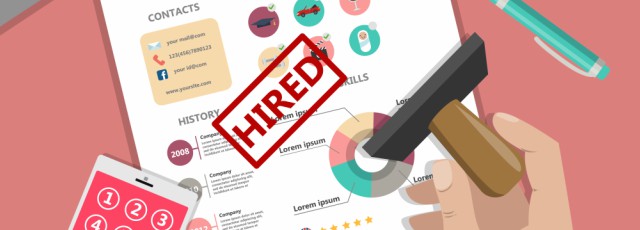New hire paperwork checklist
Before a new hire’s first day at work, you need to prepare a series of forms and agreements to properly onboard them. Some of these documents are required by labor law, while others are optional.

A few thing to keep in mind:
- Check your local labor regulations to ensure you comply with the law at all times.
- Once you collect signed agreements from new employees, securely store these documents (in digital or physical form) as they contain confidential data.
Use this new hire paperwork checklist as a guide when you’re onboarding new employees:
- Prepare an employment contract and receive signed, if applicable. You can send this contract along with your job offer email or letter. An employment contract should include:
- Job information (job title, department)
- Work schedule
- Length of employment
- Compensation and benefits
- Employee responsibilities
- Termination conditions
- Make sure you and new hires complete employment forms required by law. These forms will provide you with new hire data, so that you properly classify and compensate employees. Legislation may differ based on your state or country, so make sure you complete all necessary forms within deadlines. The most common types of employment forms to complete are:
- W-4 form (or W-9 for contractors)
- I-9 Employment Eligibility Verification form
- State Tax Withholding form
- Direct Deposit form
- E-Verify system: This is not a form, but a way to verify employee eligibility in the U.S.
- Prepare and obtain signatures on internal forms. Make sure to get signatures on forms your company uses to establish its relationship with employees. These could include:
- Non-compete agreements
- Non-disclosure agreements
- Employee invention forms
- Employee handbook acknowledgement forms
- Drug and/or alcohol test consent agreements
- Job analysis forms (responsibilities, goals and performance evaluation criteria)
- Employee equipment inventory lists
- Confidentiality and security agreements
- Prepare employee benefits documents. If you offer employee benefits, you will need to give new hires paperwork that describe terms and conditions and, in some cases, receive them signed. The most common employee benefits are:
- Life and health insurance
- Mobile plan
- Company car
- Stock options
- Retirement plan
- Disability insurance
- Paid time off/vacation policies (including any paid holidays)
- Sick leave
- Employee wellness perks (e.g. gym memberships)
- Tuition reimbursement
Learn everything about employee benefits.
- Obtain employees’ personal data for emergencies. To reinforce health and safety in the workplace, it’s best to keep a record of employees’:
- Emergency contacts
- Brief medical history
- Food allergies or preferences (e.g. vegan or gluten-free)